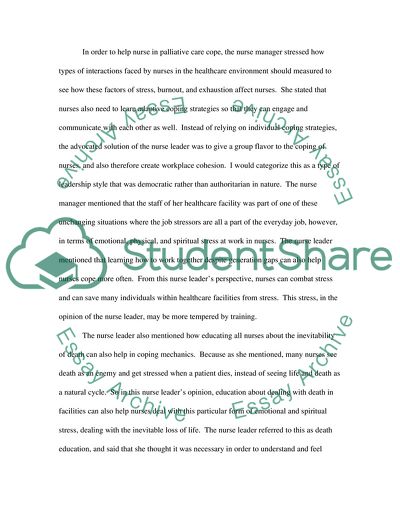The Experience of Being an Older Nurse Assignment. https://studentshare.org/nursing/1723519-the-experience-of-being-an-older-nurse
The Experience of Being an Older Nurse Assignment. https://studentshare.org/nursing/1723519-the-experience-of-being-an-older-nurse.


